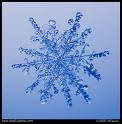It begins, as I said, with Palm Sunday, and then continues to this (KJV)...
Quote:
Mark 11 12 And on the morrow, when they were come from Bethany, he was hungry: 13 And seeing a fig tree afar off having leaves, he came, if haply he might find any thing thereon: and when he came to it, he found nothing but leaves; for the time of figs was not yet. 14 And Jesus answered and said unto it, No man eat fruit of thee hereafter for ever. And his disciples heard it. |
After this, Yeshua and the disciples enter Jerusalem, and we find the famous moneychangers in the Temple scene. Then this follows...
Quote:
Mark 11 19 And when even was come, he went out of the city. 20 And in the morning, as they passed by, they saw the fig tree dried up from the roots. 21 And Peter calling to remembrance saith unto him, Master, behold, the fig tree which thou cursedst is withered away. 22 And Jesus answering saith unto them, Have faith in God. 23 For verily I say unto you, That whosoever shall say unto this mountain, Be thou removed, and be thou cast into the sea; and shall not doubt in his heart, but shall believe that those things which he saith shall come to pass; he shall have whatsoever he saith. 24 Therefore I say unto you, What things soever ye desire, when ye pray, believe that ye receive them, and ye shall have them. 25 And when ye stand praying, forgive, if ye have ought against any: that your Father also which is in heaven may forgive you your trespasses. 26 But if ye do not forgive, neither will your Father which is in heaven forgive your trespasses. |
There are three very important lessons in these verses. First, even more than the moneychangers scene, this story displays the essential humanness of Yeshua. This incredible man, this wonderful and wise teacher, loses his temper at a tree and kills it with a word (in Matthew the tree withers instantly, rather than overnight as here). This shows us that Yeshua is not perfect, he is flawed, just like all of us. How many of us have wounded another with unkindness in a moment of frustration? How many of us have gotten snappy with others, even others we love, when we are hungry, as he was? How incredibly normal and natural! This moment of imperfection on the part of Yeshua I find incredibly inspiring, because more than his temptation in the wilderness or his fear in Gethsemane or his doubt at Golgotha, this shows me a Yeshua I can relate to as another man, searching for peace within and without, and occasionally failing.
Notice then, in the second part, how he turns a negative into a positive. Instead of dwelling on his mistake, he uses the awe his followers feel at the sight of the dead tree into an object lesson in the power that all have within them. And notice also, there are no caveats or limits to the power of prayer (some were added to this same story in Matthew), only that one needs to believe, completely, in the power of the Divine and that the prayer will be answered. It doesn't matter what is prayed for, it doesn't matter the purity of the asker, all that matters is faith that goes beyond faith to perfect knowing and confidence.
But notice now the addendum to this teaching, the importance of forgiveness of others. This seems abrupt, almost a changing of subject, if one assumes the perfection of Yeshua, but in light of his flaws it makes perfect sense. Yeshua knows that he has done wrong by losing his temper and killing the tree, and in his heart he has asked the Divine for forgiveness for his trespass. Since this is on his mind, he then passes on the insight that God will forgive us precisely as much as we forgive others. With the knowledge of how close Yeshua is to his greatest forgivenesses of others at this time (the Tuesday before Good Friday), this teaching becomes especially poignant.
Mark 11, more than any other part of the Bible, reveals to me the true nature of the man we now call Jesus; God made man, yes, but not unique in this and, in his own way, just as flawed and human as any of us.

One of my favorite passages :)
ReplyDelete